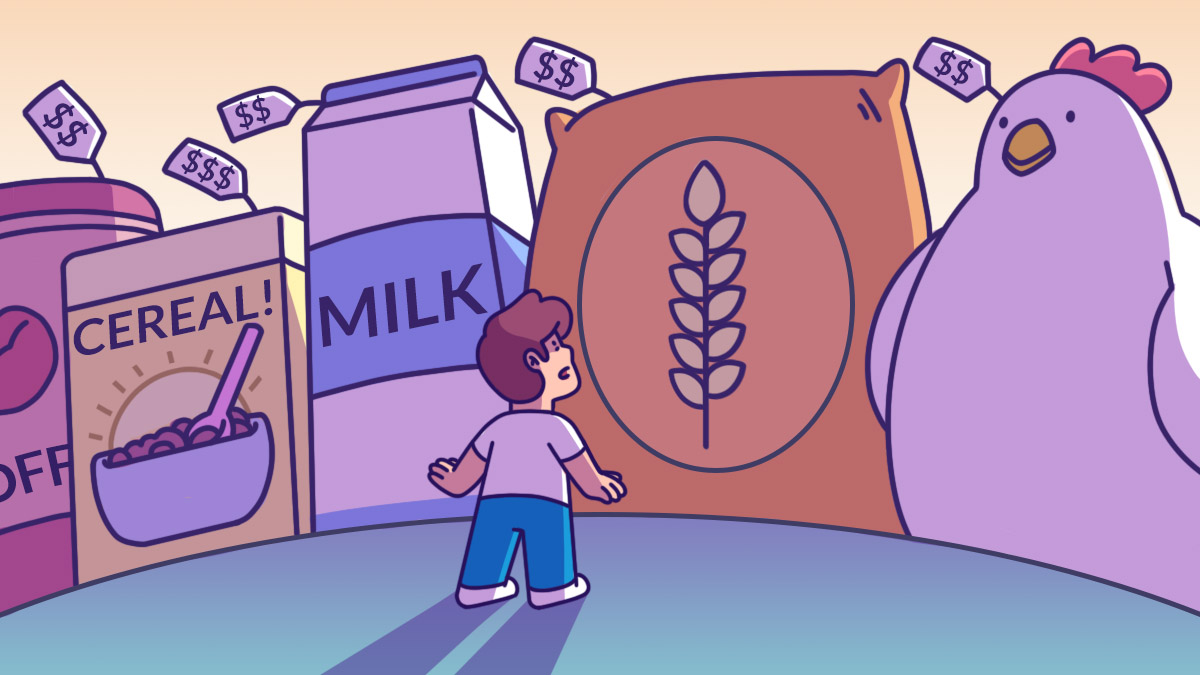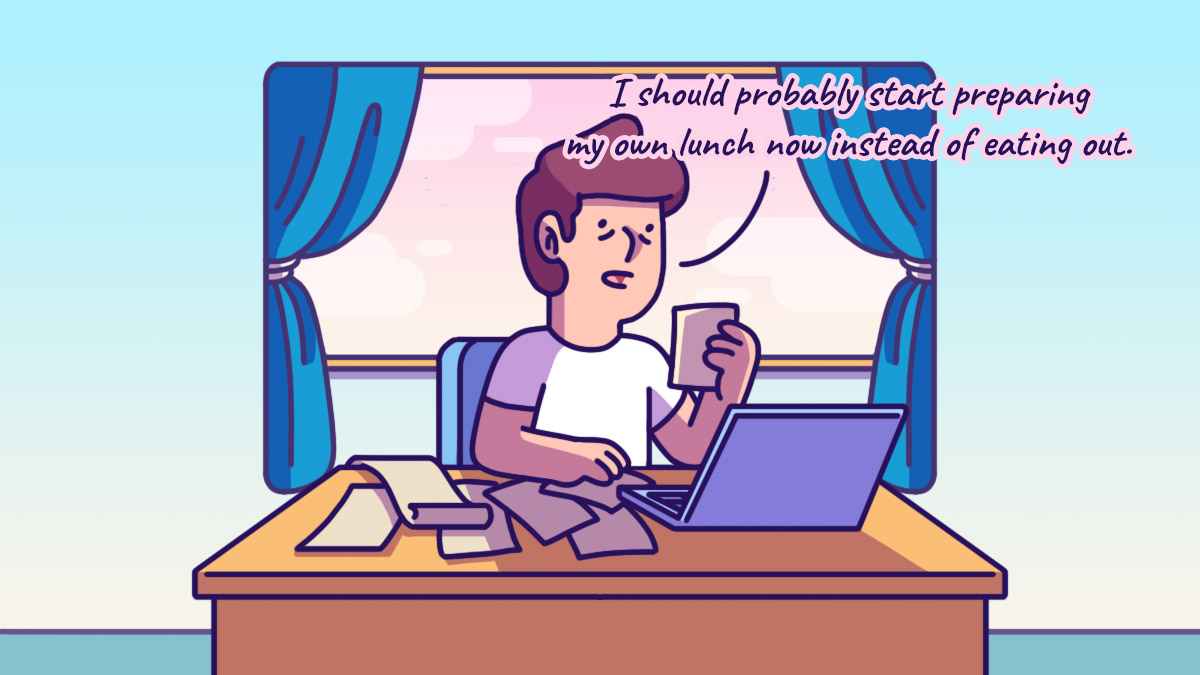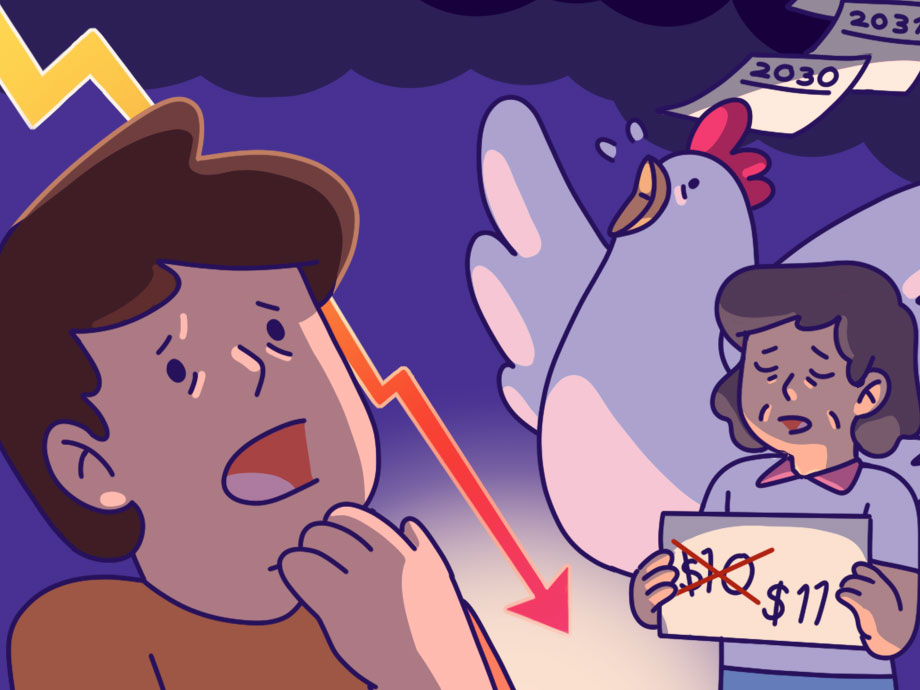Financial Planning | Investing | Personal Finance | Article
Feeling the Pinch of Inflation? Ask Yourself These 4 Important Questions To Better Manage Your Money Amidst Rising Costs
by The Simple Sum Team | 1 Dec 2022 | 9 mins read

This article is brought to you by POSB
Even as prices started rising at the start of the year, there was still a ray of hope that perhaps things would improve, or price increases would slow down toward the end of the year.
And if you have been reading the headlines, you would know that the opposite has happened. Inflation has continued to stay high and it will continue to stay in Singapore next year, according to the Monetary Authority of Singapore.
While there isn’t much that we can do to change or influence the onslaught of inflation, what we can control is how it affects us. And there are things that you can do to impact the effects of inflation on you.
Here are four questions to help you to better manage your money during these more trying times.
1. How much more am I spending every month because of inflation?
As you see the price of everyday items go up, you know for sure that you are spending more. But unless you have made a conscious effort to do all your sums, you are likely unable to adequately answer the question of just how much more you are spending.
And without knowing how much more of your money you are handing over every month, it is hard to have a plan to take control of your money.
Instead of simply acknowledging that you have been spending more, it’s time to take out the receipts to have a precise idea of just how much you have been affected by inflation, in all aspects of your life.
If you have been tracking your spending, it would be good to compare your monthly average spending from last year to this year, to see how much more you are spending.
Aside from regular expenses, don’t forget to look at whether your home repayments have increased too. As interest rates have also been on the rise, you might have to pay more every month if you had opted for a floating rate loan. And this increase in spending should be factored into your plan to manage your finances better.
And after you have gathered information on how much more you are spending every month this year, the next question to consider is…
2. What can I eliminate from my budget every month?
The last thing that we want during this period as far as possible, is for our savings rate to be impacted. And the way to do this is to spend less.
It’s time to take a hard look at what we’re spending on every month and make some necessary cuts. And for most of us, there usually are areas that we could be more prudent on.
What you’re looking to do is to reduce your monthly expenditure to the same levels as it was last year. For example, if your average monthly expenses increased by $100, you’ll want to see how you can reduce your current expenses by $100.
Of course, there will be some items that you won’t be able to reduce, no matter what you do, such as how much you spend on your housing repayments as that’s determined by your housing loan terms, so don’t spend time on that.
What you could do it to make some changes to your lifestyle to keep costs down such as prepping for your meals in bulk instead of eating out as often or waking up earlier to catch the train to work instead of taking a taxi.
But if you are already rather thrifty regularly and can’t find any other ways to further reduce your regular expenses, then the next question to ask yourself is…

3. Can I make my money work harder for me?
Saving is a value that most of us are taught at a young age. Unfortunately, the same cannot be said for knowing how to make your money work harder for you.
If you simply leave money inside a savings account, the interest you get on it is paltry and can be considered practically nothing compared to the rate of the increase in the cost of goods.
Hence, consider moving your money over to a high yield savings account that gives you a much better interest rate. The only thing to note is that such accounts usually come with certain criteria, such as having your monthly salary credited to the account and spending on your credit card each month. Do your research and ensure that you can easily hit the requirements to qualify for better interest rates before committing to it.
If you have extra cash after putting aside an emergency fund of three to six months’ worth of expenses, consider investing this money (and keeping it invested for the long term) to ensure that its value doesn’t get eroded by inflation.
If you are hesitant to invest because of the current volatility in the market, opt for lower risk investments instead. The returns may not be as attractive, but the likelihood of losing your money is also smaller, which would help you sleep better at night. Another approach would be to dollar cost average into the market and buy slowly but steadily into your investments.
But beyond just making your money work harder for you, you should also ask yourself…
4. How much more money can I earn?
An alternative to cutting down on your expenses is to find ways to increase your income. And generally, there are two ways you can do it.
The first would be to try to increase your salary from your day job. Work on improving or acquiring skills that will make you more effective in your role and from there speak to your supervisor about a possible pay raise. It won’t be easy, given the current economic climate, but it’s up to you to make it something that’s difficult for your boss to say no to.
If that doesn’t work out, you could consider moving to another company to get your salary bump. But this comes at the price of having to adapt to a new work environment and role, so weigh out the pros and cons before making any move.
The other way to increase your inflow of cash is to take up a side gig and supplement your income. And it doesn’t need to be a large amount. Simply making the amount that your expenses have increased by helps ensure that how much you manage to save every month isn’t affected by inflation.
You could monetise your existing hobbies such as photography or design, by offering such services online. Or if you are an animal lover, dog walking or pet sitting is a way to mix earning money with something that you enjoy. There’s also being a part-time food delivery person or taking up jobs as a private hire driver.
Managing inflation isn’t fun, but the good news is that if you make some effort, you can keep it under control and not let it affect your long-term financial plans. Go through the above questions seriously and you’ll come out doing just fine in this period of constantly rising costs.
Related
Content sponsored by POSB
Many Singaporeans are affected by inflation and POSB wants to help and come out stronger in all aspects of their finance. Here’s what how:
Your Multiplier account now gives you higher interest rates of up to 4.1%* p.a., with no minimum amount required across product categories. View how much more you can save with Multiplier here.
You can also pair your Multiplier and POSB Save-As-You-Earn (SAYE) Account to earn 3.5%* p.a. on your monthly savings in your SAYE account.
If you’re asking yourself what areas of your spending has gone up this year you can track your spending on NAV Planner, which automatically . Set a budget for each category and you’ll also get notified when you go over, making it easier for you to watch your spending. You can also get an overview of your mortgage, insurance and investments in NAV Planner.
To help you stay on track with your long term financial needs and goals, there’s a wide range of investment and solutions offered by DBS, such as Invest-Saver regular savings plans, digiPortfolio, SavvyEndowment 10**, ProtectFirst**, and Complimentary Personal Accident Protect II***.
*Terms and conditions apply. SGD deposits are insured up to S$75k by SDIC.
** In collaboration with Manulife, issued and underwritten by Manulife (Singapore) Pte. Ltd. (Reg. No. 198002116D) and distributed by DBS Bank Ltd. Protected up to specified limits by SDIC; and for ProtectFirst, premiums are not guaranteed.
***Complimentary Personal Accident Protect II is underwritten by Chubb and distributed by DBS.
This article is for general information only and should not be relied upon as financial advice. Any views, opinions or recommendation expressed in this article does not take into account the specific investment objectives, financial situation or particular needs of any particular person. Before making any decision to buy, sell or hold any investment or insurance product, you should seek advice from a financial adviser regarding its suitability.
It is provided in Singapore by DBS Bank Ltd (Company Registration. No.: 196800306E), an Exempt Financial Adviser as defined in the Financial Advisers Act and regulated by the Monetary Authority of Singapore
The information and opinions contained in this article has been obtained from sources believed to be reliable, but DBS makes no representation or warranty as to its adequacy, completeness, accuracy or timeliness for any particular purpose.
This article is not intended for distribution to, or use by, any person or entity in any jurisdiction or country where such distribution or use would be contrary to law or regulation.
This advertisement has not been reviewed by the Monetary Authority of Singapore.
















